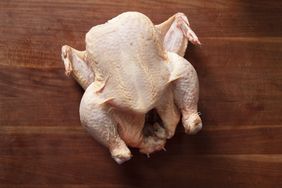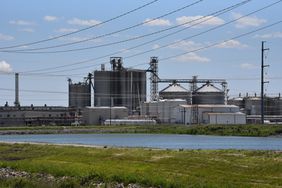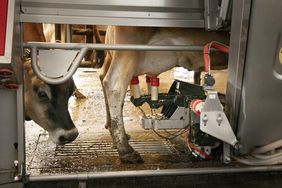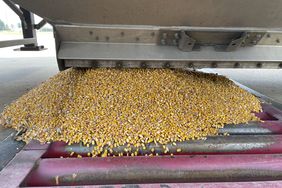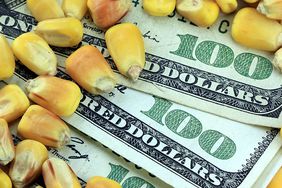:max_bytes(150000):strip_icc()/Screen20Shot202016-07-1320at204.19.1620PM-082a700fca85446396c8f404e58e3fea.png)
A highly volatile commodities market caused by Russia's war against Ukraine has prompted some farmer cooperatives to suspend their cash bids to buy grain from producers.
Landus Cooperative, the state's largest agriculture co-op, announced Friday it would cease its cash grain bids at 1 p.m. that day because of "increased market risk & volatility caused by the Russia-Ukraine conflict," according to a note on its website that has since been removed.
Landus resumed its normal grain bidding on Monday, said Mary Harrington, a spokesperson for the company. She did not know whether Landus would pause the bids again in the near future.
"It's not just Landus doing this," said Chad Hart, an economics professor at Iowa State University who specializes in crop markets. "In extreme situations like this, if they're really worried about the risk, they'll just pull the bid off for a day or two and then jump back in later when they feel the markets are more settled."
It's unclear when the markets will settle as the overseas war continues, with the potential to affect exports and the upcoming planting season. Russia and Ukraine are major wheat producers, accounting for about a quarter of global exports. Wheat prices have had the most-pronounced increases among grain commodities and reached an all-time high on Friday.
Ukraine is also a major corn producer, and the price of corn eclipsed $7 per bushel last week and was higher than it's been since 2012. The same is true for soybeans, which neared $17 per bushel at one point last week but receded.
Even though grain prices are trending upward, there is uncertainty about how high they might go or when they might fall.
"Commodities as a whole saw their biggest weekly gains since 1960," Landus said in an explainer of the market volatility it posted to its website on Monday.
The surging prices have attracted attention from a wider swath of investors, including amateurs that are commonly referred to as "retail investors," Landus said. Exchange-traded funds for grains — which allow commodity contracts to be bought and sold similarly to stocks — have been among the most-talked-about investments by the online community Reddit and the investment-minded social media platform StockTwits, Landus said.
"As a result of this massive interest in commodities from outside sources, we are seeing an incredible divergence from futures in the cash market, with many elevators taking their bids well out into the deferred months if they are even looking to buy at all," Landus said.
That is true of Farmers Cooperative Elevator Company in Arcadia, which bought an abnormally high amount of corn last week — about 400,000 bushels — from area farmers who pounced on the high prices, said Darrell Henkenius, the chief executive of the western Iowa co-op.
"This month we're not taking (more) corn, just digging ourselves out," Henkenius said. "Nobody expected $7 corn this year. The only reason we have $7 corn is because we have a war going on."
Iowa Capital Dispatch is part of the States Newsroom, a network of similar news bureaus supported by grants and a coalition of donors as a 501c(3) public charity.


